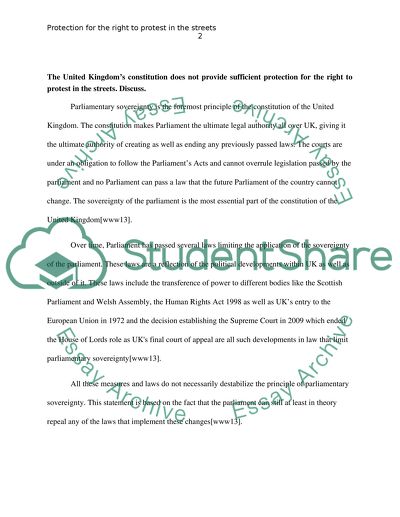Cite this document
(“The United Kingdoms Constitution: Protection for the Right to Protest Essay”, n.d.)
The United Kingdoms Constitution: Protection for the Right to Protest Essay. Retrieved from https://studentshare.org/law/1466534-the-united-kingdomyies-constitution-does-not
The United Kingdoms Constitution: Protection for the Right to Protest Essay. Retrieved from https://studentshare.org/law/1466534-the-united-kingdomyies-constitution-does-not
(The United Kingdoms Constitution: Protection for the Right to Protest Essay)
The United Kingdoms Constitution: Protection for the Right to Protest Essay. https://studentshare.org/law/1466534-the-united-kingdomyies-constitution-does-not.
The United Kingdoms Constitution: Protection for the Right to Protest Essay. https://studentshare.org/law/1466534-the-united-kingdomyies-constitution-does-not.
“The United Kingdoms Constitution: Protection for the Right to Protest Essay”, n.d. https://studentshare.org/law/1466534-the-united-kingdomyies-constitution-does-not.


